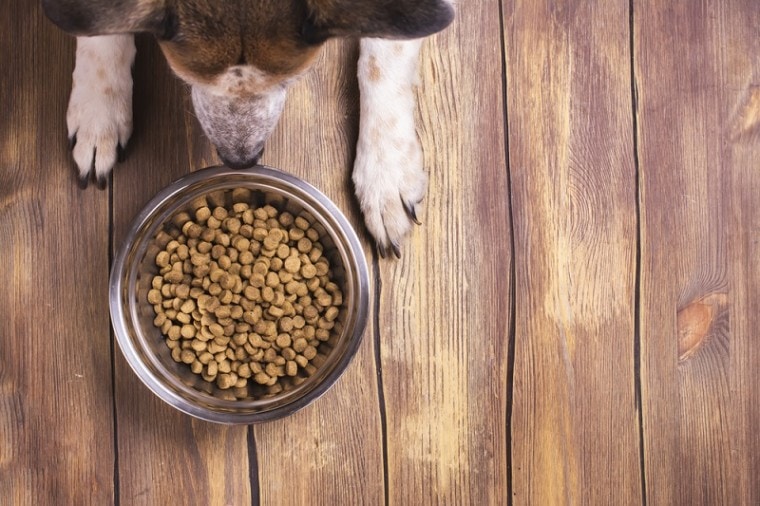
If you’ve spotted taurine listed on your dog food’s nutritional label, you may be wondering what it is and if it’s something dogs need in their diet. In short, taurine is an amino acid found in meat. Though the addition of taurine to dog food is not essential as per the American Association of Feed Control’s (AAFCO) guidelines, some dog food companies choose to add it as a supplement.
In this post, we’ll explain exactly what taurine is, why some dog food manufacturers add it to dog food, and discuss whether or not it’s beneficial for dogs’ health. Read on to find out more.
 What Is Taurine?
What Is Taurine?
Taurine is an amino acid that most animals naturally produce, including dogs. Amino acids are known as the foundations or “building blocks” of proteins. Taurine can be found in the muscles, brain, eyes, and other organs, and makes up one of 22 amino acids that dogs need and either produce naturally or need to be provided with. Amino acids are separated into two categories—essential and non-essential.
Essential amino acids are those that must be given to your dog via dog food or supplements because their bodies can’t make them on their own. Non-essential amino acids, by contrast, are amino acids that your dog’s body naturally makes.
Taurine is classified as “non-essential”, which means it doesn’t necessarily have to be supplemented via dog food or special supplements. 10 amino acids are listed as “essential” for dogs, and 12 are listed as “non-essential.”
Though not a requirement for dogs, the inclusion of taurine in food is a requirement for cats as they can’t make it naturally.

Is Extra Taurine Beneficial for Dogs?
The reason why some dog food manufacturers add taurine to their products is that taurine deficiency has been linked to heart problems and other conditions in dogs, specifically Dilated Cardiomyopathy. Dilated Cardiomyopathy is a condition that causes the heart chambers to enlarge and the cardiac muscles to thin.
So, adding taurine to dog food may help prevent taurine deficiency and related conditions like heart problems, eye problems, and crystals in the urine. To do this, you could look into quality dog food brands that contain taurine or, if you prepare your own dog food at home, check out protein sources that naturally contain taurine. These include shellfish, fish, poultry, and red meat.
If you’re considering taurine supplements—or any supplements—we recommend running it by your vet first. This is because your vet can help you determine whether or not your dog actually needs taurine supplements or if there are any other deficiencies present that need treatment.

 Final Thoughts
Final Thoughts
To sum everything up, taurine is an amino acid that dogs naturally produce and is one of 12 amino acids classified as “non-essential”.
For this reason, you won’t find it in every type of dog food as its inclusion is not an AAFCO requirement, but there’s nothing wrong with giving your dog a bit of a taurine boost by including quality meat proteins in their diet or choosing dog foods with taurine added. A taurine deficiency can lead to some serious health issues, so it’s definitely something to be aware of.
Featured Image Credit: Ekaterina Markelova, Shutterstock

 What Is Taurine?
What Is Taurine?



